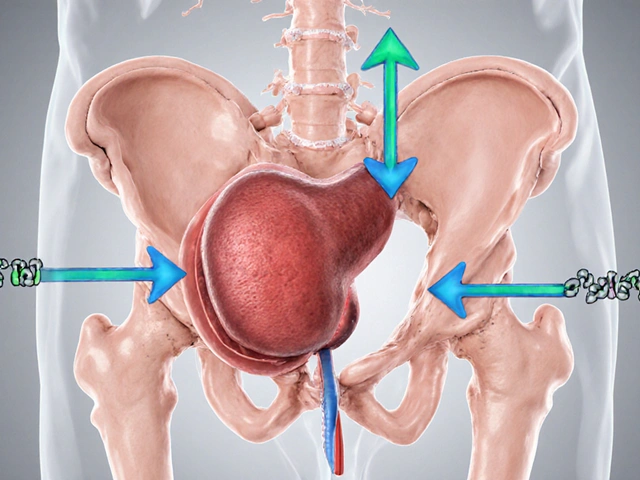Natural Anti‑Inflammatory Options You Can Start Using Today
If inflammation is nagging your joints, gut, or skin, you don’t always need a prescription. Nature offers several compounds that calm swelling without the side‑effects of many drugs. Below we break down the most practical herbs and extracts, how they work, and what you should watch for.
Chestnut Extract – The Tannin Powerhouse
European chestnut (Castanea sativa) bark is rich in tannins, flavonoids, and a type of fiber called aescin. These ingredients help tighten blood vessels and reduce the release of inflammatory messengers. Research on chestnut supplements shows they can ease chronic joint pain and support vascular health when taken at 300‑500 mg daily.
When choosing a chestnut product, look for a standardized extract that lists the percent of aescin. Avoid cheap powders that contain fillers, and start with a low dose to see how your stomach handles it.
Winter’s Bark – A Seasonal Defender
Winter’s bark, also known as Pinus sylvestris bark, has been used for centuries to fight cold‑induced inflammation. Its resinous compounds, like pineol and pinene, act like natural NSAIDs, soothing sore muscles and irritated skin. A typical dose is 200‑400 mg of a dry extract taken with food.
Because Winter’s bark can lower blood pressure, people on antihypertensive meds should check with a pharmacist before adding it. For most folks, a short course of two weeks is enough to notice reduced joint stiffness.
Peppermint and Ginger – The Digestive Duo
Peppermint tea and ginger tea are fame‑makers in the world of gut inflammation. Peppermint’s menthol relaxes the smooth muscle lining the intestines, cutting down cramping and bloating. Ginger’s gingerols block cyclooxygenase enzymes, the same target as many over‑the‑counter pain relievers.
Drink a cup of peppermint tea after meals, or steep fresh ginger slices in hot water for 10 minutes. If you’re sensitive to caffeine, opt for the caffeine‑free peppermint version. Both are safe for most adults, but high doses of ginger (over 4 g per day) can thin blood, so keep an eye on your intake if you’re on blood thinners.
Quick Safety Checklist
1. **Confirm purity** – Choose brands that provide third‑party testing results.
2. **Start low, go slow** – Begin with half the suggested dose and increase only if you tolerate it well.
3. **Watch interactions** – Anti‑inflammatory herbs can affect blood clotting, blood pressure, and blood sugar. Talk to your doctor if you’re on chronic meds.
4. **Stay consistent** – Natural compounds often need a week or two of regular use to show benefits.
Natural anti‑inflammatory agents can fit right into a daily routine, whether you sip a soothing tea, pop a capsule, or add a tincture to your smoothie. By picking well‑researched options like chestnut extract, winter’s bark, peppermint, and ginger, you give your body a gentle yet effective way to keep inflammation in check. Keep the checklist handy, listen to how your body reacts, and you’ll be on the path to less ache and more ease.
Loosestrife Supplement: Healing Benefits & How It Works
Discover the science behind Loosestrife, a powerful herbal supplement that boosts immunity, reduces inflammation, and supports overall health.
Top Natural Alternatives to Prelone for Inflammation Management in 2024
Explore a range of natural and pharmaceutical alternatives to Prelone for managing inflammation in 2024. From turmeric's ancient anti-inflammatory properties to the synthetic effectiveness of Millipred and Orapred, this guide covers various options suitable for different needs and conditions. Each alternative is discussed with its benefits and drawbacks to help you make informed decisions.






